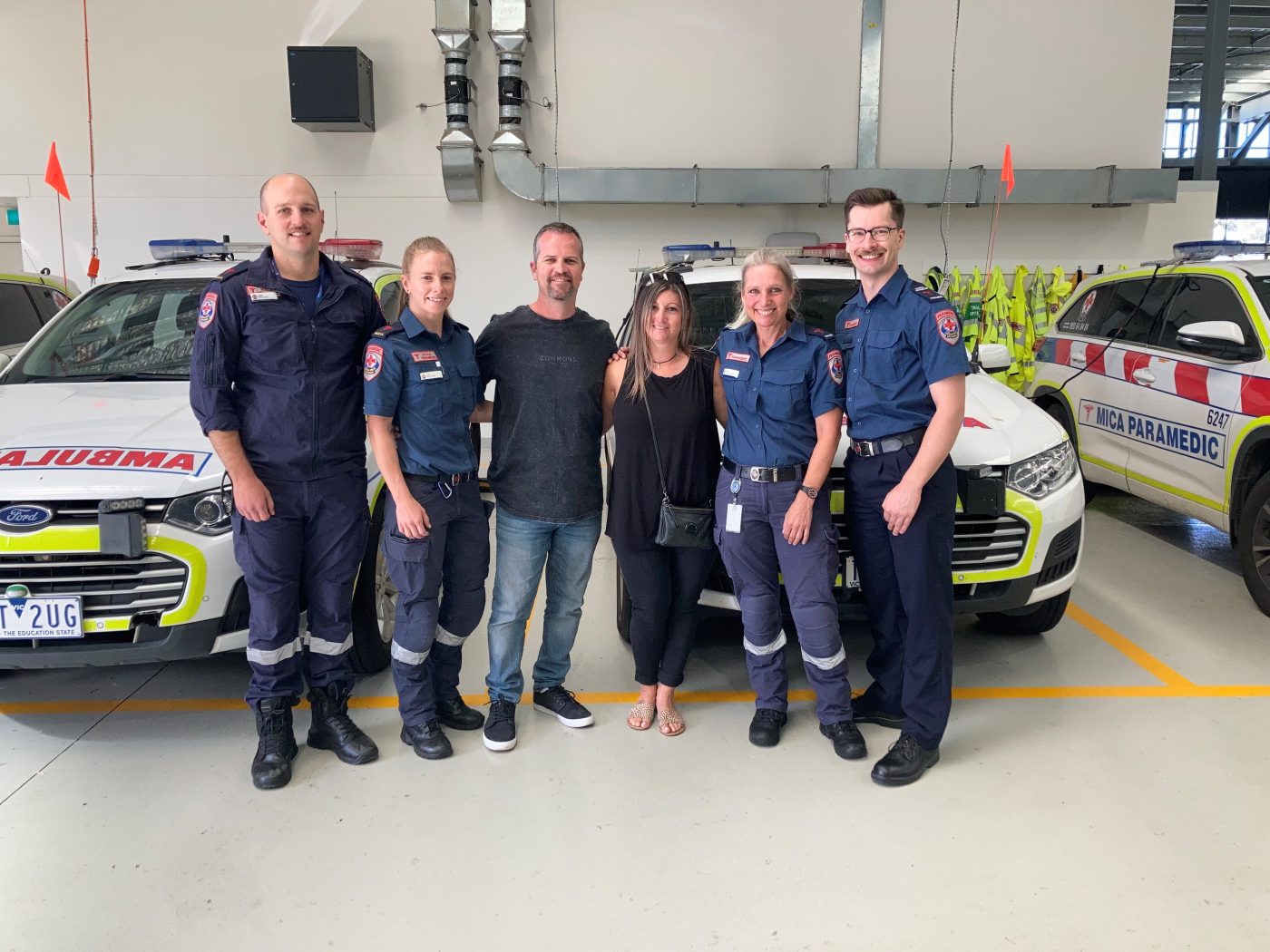
A Police officer who suffered a cardiac arrest at his Sunbury home has thanked paramedics for saving his life.
Leading Senior Constable Danny Wakelin had been feeling unwell one evening in January, with pain in his chest, jaw and shoulder.
He called Triple Zero (000) when the pain hadn't resolved by the following morning.
Advanced Life Support (ALS) paramedics Tristan Adams and Sadie Powers were first on scene.
They assessed the Melton Highway Patrol member using an electrocardiogram (ECG) and confirmed that the 46-year-old was suffering an ST-elevation myocardial infarction (STEMI) - a serious type of heart attack.
A heart attack occurs when the heart is still beating, but blood flow decreases due to a partially blocked or clogged artery - and the person may or may not lose consciousness.
"ALS paramedics can often be the first crew on the scene. Using 12-lead ECGs means we can diagnose a heart attack earlier, which we know is critical for survival," Tristan said.
"Early diagnosis by our paramedics means we can get notify the hospital and they can prepare for the patient."
Research has shown the sooner the dangerous clots in heart blood vessels can be treated, by either a clot-dissolving drug or undergoing a specialist in-hospital procedure, the better outcome for the patient.
Tristan and Sadie immediately started treatment for the STEMI and called for Mobile Intensive Care Ambulance (MICA) back up.
Danny started walking to the ambulance – after refusing a wheelchair – and the increase in workload to his heart triggered a cardiac arrest.
A cardiac arrest occurs when a person's heart suddenly stops beating.
Tristan and Sadie commenced cardiopulmonary resuscitation (CPR) and applied an automated external defibrillator (AED), shocking Danny's heart back into a normal rhythm.
Tristan said that early CPR and defibrillation are critical steps that help save the lives of people in sudden cardiac arrest.
"Anyone can save a life in three simple steps. Call, Push, Shock: Call Triple Zero (000), Push Hard, Push Fast on the middle of the chest, shock using an AED," he said.
Fire Rescue Victoria (FRV) firefighters arrived on scene and took over CPR until MICA paramedics Luke Baird and Catherine Cristofaro began their specialised treatment.
Danny was taken to St Vincent's Hospital where he underwent an angiogram to dissolve a clot and was discharged three days later.
"I have never had any issues with my health or my heart - so this medical episode came out of nowhere," Danny said.
"I can't thank the first responders enough for saving my life - they were absolutely flawless. I have two teenage sons and they are the reason I am so thankful I got through this incident. My wife Kylie and I greatly appreciated the chance to see those who helped us and to thank them personally."
Danny said he never thought he would be in the care of Ambulance Victoria.
"The reunion was both fantastic and emotional, because I have seen paramedics in action while I've been on the job, and I know how hard they work - especially at cases like mine, that wasn't an easy one," he said.
"I have encouraged all my friends and colleagues to get their heart checked, regardless of age, and not to wait to book in with their doctor if they are experiencing any classic signs of a heart issue."
MICA Catherine echoed Danny's comments saying, middle-aged men often describe the feeling of heart burn when they are suffering a heart attack, so it's important to act on chest pain - even if you are fit and healthy.






